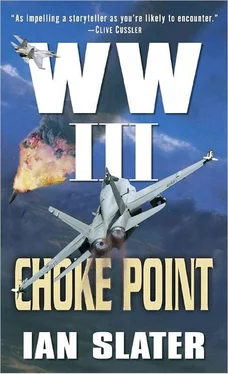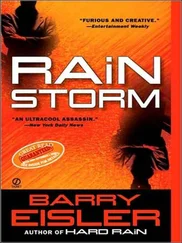It happened when a small boy, one of the many children who were now running and laughing through the crowded alleys, dashed past the old man and down the embankment steps to the right of the bridge. For a few seconds, urinating into the fetid green water, he was unaware of the commotion that was beginning up on the bridge. A clump of cyclists, head and shoulders barely visible above the bridge’s stone balustrade, began shouting, gesticulating wildly down at the him. “Gan kuai! Gan kuai!” Grab a pole!
Only then did the boy look up and out at the canal and see the floating lump gyrating slowly in the shadowed eddies beneath the arch. At first he thought it was the body of an infant girl, the infanticide of baby girls as common in Suzhou as in any other province of China, whose strictly enforced policy of one child per couple gave preference to males.
A crowd of onlookers was gathering quickly about the embankment, and as they pulled the body ashore, its sodden Mao suit now an inky blue, the head lolled down like a wet, black mop. Some of the more curious onlookers bent low, peering between the legs of others. A noisy khaki motorcycle and sidecar pulled up, its two traffic policemen in crumpled, baggy white uniforms. They walked over importantly beneath the shade of the sycamore trees, ordering the crowd of drab blue- and gray-clad workers aside. While appearing to move away, the crowd merely moved around, staying more or less where they were until a small blue Jinlin truck arrived, carrying four members of the People’s Liberation Army. They were from General Chang’s Nanjing Military District’s 12th Army, and along with new olive-green uniforms and medals for valor in Tiananmen Square and against the mass protests of the Falun Gong sect, their uniforms sported the new gold shoulder boards of rank.
The soldiers, bearing AK-47s, started shouting orders, but even then the crowd moved reluctantly, some sullenly, to let the soldiers through. One man well back in the crowd asked aloud whether the People’s Liberation Army had come armed because they intended killing more of their fellow Chinese or because they were afraid to come among the people unarmed. Someone else, incensed at the comment, shouted that he didn’t blame the soldiers for defending themselves these days. Another two of them had been found garroted in the hutongs in just the past week, presumably by Xinjiang/Kazakhstan terrorists or members of the “counterrevolutionary” Liu Si Minzhu Yundong — the June 4 democracy movement. Or by the Falun Gong.
As the two policemen searched the body’s sodden Mao suit, the four soldiers found it increasingly difficult to keep the onlookers from pressing in, and the soldiers’ officer, a young lieutenant, told the policemen to hurry things up. After a quick glance at the dead girl’s green identification card, one of the policemen handed it up to the PLA lieutenant.
“ Da bizhi! ” he said. A Big Nose, a foreigner.
The photograph showed a young woman, eighteen years old, five feet four inches, hazel eyes and brown hair now turned black by the water, the engaging smile of the identification card in marked contrast to the gruesome matted hair and bloated corpse that had just been dragged from the canal. The PLA lieutenant showed the photo to his gawking comrades, announcing loudly, “ Meiguoren xuesheng .” American student. He was disgusted. It was common knowledge that foreign students and “rebellious antisocial elements” among the Chinese students often had postexamination “five-star” beer parties, got blind drunk, fell into the canal, and drowned.
After finishing work, Charles Riser, the attaché for cultural affairs at the U.S. Embassy in Beijing, returned to his apartment in the diplomatic compound near the Friendship Store on Jianguomenwai Daijie. He smiled when he saw the red light blipping on the message machine as he walked in. He’d insisted that Amanda—“Mandy,” as he always called his daughter — leave any messages on the home tape machine because the voice mail at the embassy, which like all voice mail was stored on computer chip, could be tapped at leisure by China’s feared Gong An Bu — the Public Security Bureau. But because of the relatively old-fashioned message machine he’d had installed at his residence, the Gong An Bu wouldn’t be able to retrieve a call once it had been made, unless the they were actually tapping his home line twenty-four hours a day, seven days a week. But he knew he wasn’t that important.
He said hello to Mrs. Tse, his ayi , who cleaned and made dinner for him. Mandy had left two messages: one that Charles realized he’d forgotten to erase from last evening, which said she and fellow “totally stressed-out” students — as she put it in her wonderfully mellifluous voice — taking a break from Beijing Culture and Language University in Haidan district, had finally reached Suzhou after a terrible flight on China Air to Hangzhou. They would be in Suzhou for two or three days, depending on the vicissitudes of China Air.
A later second message, obviously from her cell phone, given its broken-up transmission, sounded urgent: “Daddy … Wu Ling … loaded … as usual … told me Chang …” A rush of static, like fish frying, then: “—tralize … or … wes … kind of deal … the mill …” More static. Then silence. She sounded frightened.
For his “little girl,” as he still called her, to risk the call instead of waiting to tell him whatever it was in person, meant that she must have known she was being followed — or worse, that she might not reach home. Mrs. Tse handed Charles his evening scotch and Evian. He took it like an automaton, didn’t say, “Thank you,” something he’d never failed to do before, and ran the message back to note the time of her call: 2:00 P.M.
He rang the Beijing Culture and Language University. “Our general office is closed for the day and will reopen …” Charles Riser tried to recall her teacher’s name. Damn! He should have paid more attention to what she’d told him whenever she came home to visit on the weekend. Where was she staying in Suzhou? All he remembered was that the students had to take a flight to Hangzhou first because there was no airport in Suzhou. Darn it, what was her teacher’s surname? But then, how would a name help him? As cultural attaché, he was only too aware of the massive problem China had with surnames, there being basically only five, creating a nightmarish problem for bureaucrats and businesses alike. One of the few ways overseas Chinese had overcome this problem, and one Riser had encouraged as cultural attaché to the U.S., was to adopt a variety of Anglicized first names so that they became “Homer Wong” or “Irene Li,” and the like.
At nine-twenty that evening Charles received a visit from a Gong An Bu man who read a note aloud saying that the Suzhou coroner’s office regretted to inform him that his daughter “Amanda”—he pronounced her surname as “Wiser”—“has drowned dead in Suzhou Canal.”
Stunned, Charles could only ask frantically, “Where is she?” If he’d thought about it for a moment, the answer was obvious — the Suzhou morgue — but the shock had hit him like a battering ram.
“I do not know,” answered the Gong An Bu man, who added after a few seconds, “Offices will be closed now in Suzhou.”
Within seconds of the man leaving, Charles was calling the wai shi —the foreign affairs branch of the Gong An Bu — using whatever influence he thought his status as American cultural attaché might exert. The Chinese government, despite all their blather about equality among the people, were, after the Japanese, the most status-conscious crowd Riser had encountered in Asia. While waiting interminably on the phone, he was stressed both by the tension of waiting for the next official up the ladder to respond to him and by the knowledge that someone, maybe one of Mandy’s friends, was trying to get through to him. God Almighty! What was happening to his family?
Читать дальше












